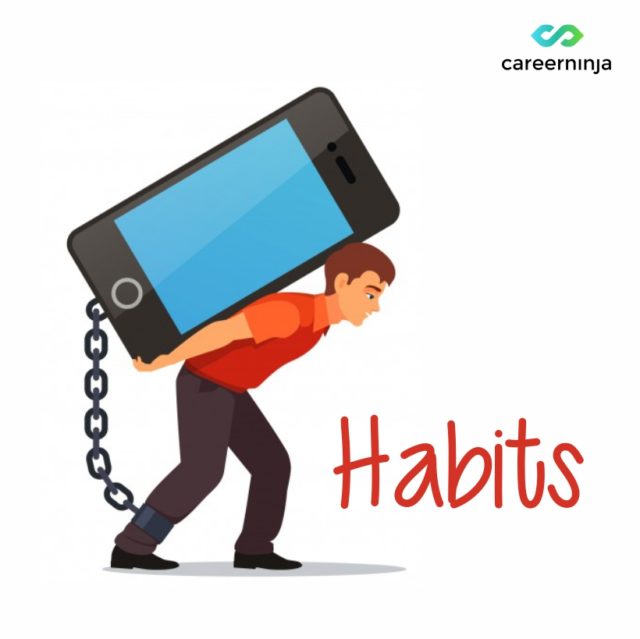“Biting your nails is a bad habit.” “Instead, You should get into the habit of reading the newspaper.” ”Smoking is a bad habit.” “Why don’t you Get into the habit of exercising every day?”
Do these sentences sound all too familiar? Have you too been told all your lives what habits you should cultivate and which ones to throw aside? Don’t people love giving free advice on matters that don’t directly concern them? But I know, sometimes these pieces of advice make sense and you want to get rid of those unpleasing habits that you have.
But how often have you been told how to cultivate good habits or how to get rid of a bad one? Not too often, right? Well, this article (or rather, the book that it’s based on) will provide you with a lifetime of wisdom.
Why are habits important?
You know how we try to automate the tasks that we know we will have to repeat frequently? Like subscriptions or morning alarms. Habits are the mind’s way of automating daily tasks.


In this case, what it means is that once you have formed a habit, the mind no longer needs to exert effort doing that task. Thus, removing the thinking aspect of doing the task. This makes it much easier for us to do these tasks in a shorter and more effective way.
For those of you who are familiar with The Power of Habit – Why We Do What We Do in Life and Business by Charles Duhigg, this article will work as a reminder of the things you should be following but probably aren’t. For those of you who aren’t familiar with the book, it’s the first thing you’ll grab by the end of this article.
How do habits work?
Before we go any further, it’s important to state that you cannot change habits. You can only replace them, i.e. bad habits can be replaced with good ones.
Let’s try to understand how this works by understanding how habits work.

To cultivate any new habit we need to have three clear definitions for the said habit:
1. Cue: A trigger that tells your brain to go into automatic mode, and which routine to use.
2. Routine: Physical, mental, or emotional behavior that follows the cue.
3. Reward: A positive stimulus that tells your brain that the routine works well, and is worth remembering.
The first two points are fairly simple to understand for we have been told all our lives that “practice makes perfect”. However, what exactly does it mean in this context? You know how exercising each day eventually results in our muscles getting stronger? The mind works in a similar fashion.
The neural networks, or the pathways of the brain, that are most frequently used get more strengthened day by day. Thus resulting in the “perfect” part of the saying.
Now, let’s talk about the third point for a second! Do you know why it is so hard to quit smoking? This is because the mind has a craving for nicotine and the feeling that you get after a smoke. So, you can create a new routine for that trigger. Say, for example, keeping our mouth busy by chewing gum instead of picking up a cigarette.
We need to put a similar aspect in play when trying to cultivate new habits. (or trying to quit smoking for that matter.)We need to give our mind something it craves. This is the reward part of the habit loop.
What you can do


1. Define Your Why
You need to be clear about why you want to cultivate a particular habit. It’s only if your why is strong enough that you will get off your lazy ass to actually try to make a change!
2. Measure
Get an app to measure your daily progress and keep track of the same!
Check this article for the best apps available.
3. Stick With It
You need to stick with a task long enough for it to become a habit. It’s going to get tough before it starts to get easier.
Is it that simple? No. Habits are hard to break and they require constant and conscious effort. But wait till you cross over that difficult bridge and reach that sunny side of the park.
Check out this other here: 7 Simple Ways to Beat Everyday Stress






























